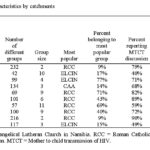 12-05-2024 ~ Aboubakar Alassane of the West Africa Peoples Organization (WAPO) explains how Nigeriens are enduring the consequences of unprecedented floods that have devastated their economy already crippled by sanctions.
12-05-2024 ~ Aboubakar Alassane of the West Africa Peoples Organization (WAPO) explains how Nigeriens are enduring the consequences of unprecedented floods that have devastated their economy already crippled by sanctions.
In the aftermath of the devastation left behind in the wake of unprecedented floods, Nigeriens are rebuilding their livelihoods and economy with the help of several relief measures instituted by the government to drastically cut prices of essential commodities and services.
The Sahel-wide flooding between June and October of 2024 has exacted a particularly high toll on the people of Niger, destroying crops, cattle, houses, and infrastructure in one of the world’s poorest countries. The country’s economy had already been strangled by seven-month-long sanctions.
By late September, at least 339 were killed, many more injured, and 1.1 million people displaced by the floods caused by unprecedented rain. The storms affected almost 190,000 hectares of cultivated agricultural land in a country with one of the highest child malnutrition rates.
Maradi region, the agricultural hub of south-central Niger, was the worst affected, with “the equivalent of an entire month’s worth of rain falling in a day,” said Aboubakar Alassane, a member of the coordination council of West Africa Peoples Organization (WAPO).
Masses of livestock, one of the most important sources of foreign exchange in Niger, were washed away in the Agadez region in the Sahara desert in the central north of the country. This destroyed the sole livelihood of nomadic communities. Read more
 12-03-2024 ~ Switching to organic products is an easy way to eat healthier and support the environment.
12-03-2024 ~ Switching to organic products is an easy way to eat healthier and support the environment.
Climate change is no longer an abstraction. I can literally see it at my front door. My figs ripened in October 2024, which has never happened before as it was never warm enough during that month. In my home state of Oregon, wildfires set new records this year, with almost 2 million acres burned.
Meanwhile, in my hometown, Eugene, we had the longest stretch of consecutive days when temperatures reached at least 100 degrees Fahrenheit in the summer. It’s hard for me to think about the world that I will leave to my grandchildren. So I look for what I can do, and believe it or not, there’s hope right at the grocery store; buying organic can contribute to combating climate change. Organic farmers actually store carbon in the soil, meaning there’s less in the air to change our climate.
A series of long-term studies mentioned below demonstrate that organic farming increases soil carbon. In other words, organic farming is carbon farming. Federal law defines organic farming as a farming method, so we know what we’re buying. Organic farmers use cover crops, mulches, and crop rotations to build healthy soil. They utilize various techniques to prevent pest problems, using only certain pesticides, which have been thoroughly reviewed as a last resort. You can support carbon farming by buying organic.
The Intergovernmental Panel on Climate Change’s (IPCC) 2023 Synthesis Report states that carbon sequestration in agriculture has one of the highest potentials for reducing carbon dioxide emissions. Carbon sequestration, or carbon farming, uses farming techniques to increase soil carbon, keeping it out of the atmosphere (For more details about carbon farming and farmers who are using the method, see “How Land Use Is a Tool for Solving Climate Change” and “Carbon Farming: A Sustainable Agriculture Technique That Keeps Soil Healthy and Combats Climate Change.”)
Referring to the IPCC recommendations, the World Economic Forum’s November 2024 article states, “[E]nhancing soil carbon sequestration through regenerative agriculture could sequester up to 23 gigatons of carbon dioxide by 2050, a substantial portion of the mitigation required to limit global warming to 1.5 degrees Celsius.” Read more

Deborah Barsky
11-28-2024 ~ What led humans on the unique path of cultural development? And can we do anything useful with newly reconstructed histories of this process?
Culture is central to defining humanity. Throughout history, many definitions have been proposed to describe what we mean when we talk about culture, leading to considerable confusion.
The word “culture” was once reserved to designate the customs and behaviors of particular groups of people in specific regions and timeframes. In recent years, however, definitions concerning what is and what is not culture have widened considerably, to the point where “culture” is now used to describe the behaviors of numerous life forms. For example, it has become common to refer to culture when describing the social structures of sperm whales and other animals, including insects.
But while animal culture denotes behaviors that are learned and socially transmitted, human cultural practices go further, transforming these behaviors into coded systems that are reproduced within specific group settings. This explains the emergence of tradition—a key element of culture that seems exclusive to humans. Traditions provide abstract mechanisms through which humans symbolically assimilate the concept of identity over time. Read more

C.J. Polychroniou
11-27-2024 ~ We should raise walls of resistance as much as we can. More important, though, we should demand from the democratic forces to adopt a socio-economic agenda that puts people’s needs above corporate interests.


Richard D. Wolff
11-26-2024 ~ The immigration issue has split and/or weakened both center and left parties and movements across many nations in recent years. Serious economic and social problems afflicting national working classes have been “managed”—at least temporarily—by scapegoating immigrants as if they were responsible for those problems. Leaders on the left fear that many among their supporters are vulnerable to that scapegoating. In contrast, leaders on the right often see that scapegoating as a means to achieve electoral gains. Trump reflected and strengthened the view that such scapegoating can get votes. The widespread perception that Kamala Harris too would be “tough on immigrants” showed that she offered no real alternative program on immigration. Thus, the classically reactionary posing of the issue as “protecting the nation against an immigrant ‘invasion’” widely prevailed.
Appeals to morality, multiculturalism, and compassion for the plight of most immigrants failed to dissuade many on the left from disengaging and moving politically rightward. The center or moderate left needs but lacks clear, strong support for immigrants that does not alienate portions of their traditional electoral base. “Me-too” opposition to immigration, even if less harsh and hostile than that of the professional demagogues, will fail, as Kamala Harris’s campaign discovered. Moreover, classic left reformism suggests a radically different program on immigration. It is derived from the reformist program (the “Green New Deal”) to address climate change when it faced a parallel problem with job-holders in polluting industries. A parallel reformist program to deal with immigration might be called an “Inclusive New Deal.” Read more

Brenna R. Hassett – Photo: en.wikipedia.org
11-26-2024 ~ There is a great deal of attention in modern societies to inequality and the social problems it causes. Often inequality is considered to be the unavoidable consequence of how society operates in many cultures, with large population numbers and competition for resources requiring a hierarchy of successful and less-successful individuals. While our globalized world may seem dominated by this kind of society, there remain groups around the world who even today live very differently, despite continual and sometimes inescapable pressure. Anthropologists, whose science is the study of humans, have been fascinated by the diversity of ways our species have found to exist, and never more so than when confronted with cultures whose ethos and way of being are radically different from the urban societies that dominate our world: where words are weapons that actually win; where showing off your skills will get you mocked, and where every aspect of life is carefully organized so that no one person should ever have any more power than anyone else.
How do some people come to live in a group that has no one at the top, telling the rest what to do? Anthropologists call societies that do not have ranks egalitarian, which means that everyone in them is equal to everyone else. This is a form of social organization that is almost exclusively seen in groups of people who are not settled in one place, tied to one type of food or resource. Rather, they spend quite a lot of their time in small groups, moving around as suits their needs. These kinds of groups have been called hunter-gatherers, but a more accurate name might be foragers: they make their living by walking through their world and exploiting what comes to hand. More than a century of research into the groups who follow their food through the landscape, and do not tie themselves to one location or one crop, has built up a picture of societies that choose to organize themselves very differently from nation-states and kingdoms, and, most importantly, actively refuse to allow any sort of rank among themselves. Read more

 12-05-2024 ~ Aboubakar Alassane of the West Africa Peoples Organization (WAPO) explains how Nigeriens are enduring the consequences of unprecedented floods that have devastated their economy already crippled by sanctions.
12-05-2024 ~ Aboubakar Alassane of the West Africa Peoples Organization (WAPO) explains how Nigeriens are enduring the consequences of unprecedented floods that have devastated their economy already crippled by sanctions. 12-03-2024 ~ Switching to organic products is an easy way to eat healthier and support the environment.
12-03-2024 ~ Switching to organic products is an easy way to eat healthier and support the environment.





